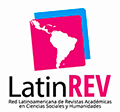Skaz in literary translation from Russian into Portuguese
DOI:
https://doi.org/10.11606/issn.2317-9511.v28i0p61-75Keywords:
Skaz, Russian Literature, Translation, Mikhail Zoschenko, Simões Lopes Nteo, Boris Eikhenbaum.Abstract
In Russian literary studies, the term skaz became well-known with Boris Eikhenbaum’s work at the beginning of 20th century. In recent Brazilian translations into Portuguese it has been transliterated, underlined and commented on, while in previous ones it was translated in different ways, such as narração direta and narrativa direta. In literary translations the identification and the use of the skaz technique help to preserve speech forms, narrator’s characteristics and the narrative rhythm. Examples from the translation of the short stories of Mikhail Zoschenko and Simões Lopes Neto help to support this idea.Downloads
Download data is not yet available.
Downloads
Published
2017-01-24
Issue
Section
Dossiê
License
Copyright (c) 2021 Denise Regina de Sales

This work is licensed under a Creative Commons Attribution-NonCommercial-ShareAlike 4.0 International License.
Autores que publicam nesta revista concordam com os seguintes termos:
- Autores mantém os direitos autorais e concedem à revista o direito de primeira publicação, com o trabalho simultaneamente licenciado sob a Licença Creative Commons Attribution BY-NC-SA que permite o compartilhamento do trabalho com reconhecimento da autoria e publicação inicial nesta revista.
- Autores têm autorização para assumir contratos adicionais separadamente, para distribuição não-exclusiva da versão do trabalho publicada nesta revista (ex.: publicar em repositório institucional ou como capítulo de livro), com reconhecimento de autoria e publicação inicial nesta revista.
- Autores têm permissão e são estimulados a publicar e distribuir seu trabalho online (ex.: em repositórios institucionais ou na sua página pessoal) a qualquer ponto antes ou durante o processo editorial, já que isso pode gerar alterações produtivas, bem como aumentar o impacto e a citação do trabalho publicado (Veja O Efeito do Acesso Livre).
How to Cite
Sales, D. R. de. (2017). Skaz in literary translation from Russian into Portuguese. TradTerm, 28, 61-75. https://doi.org/10.11606/issn.2317-9511.v28i0p61-75







